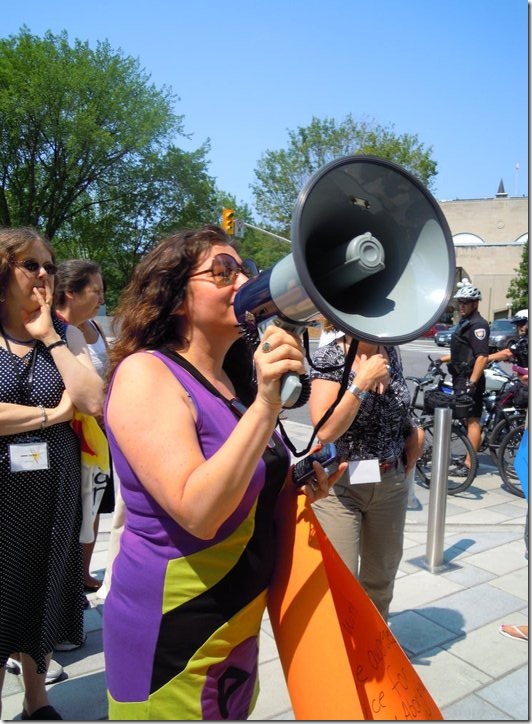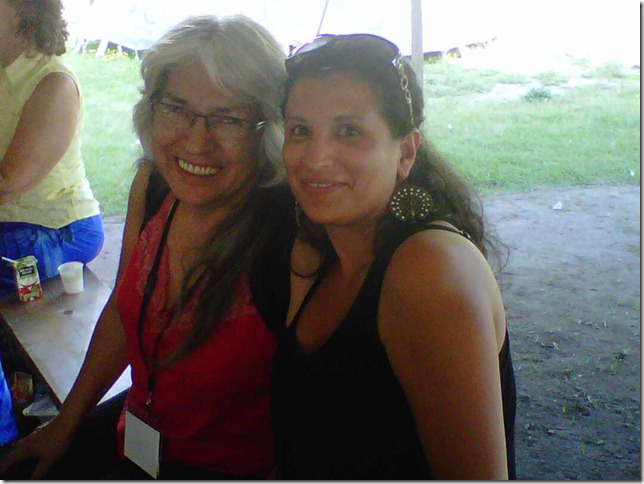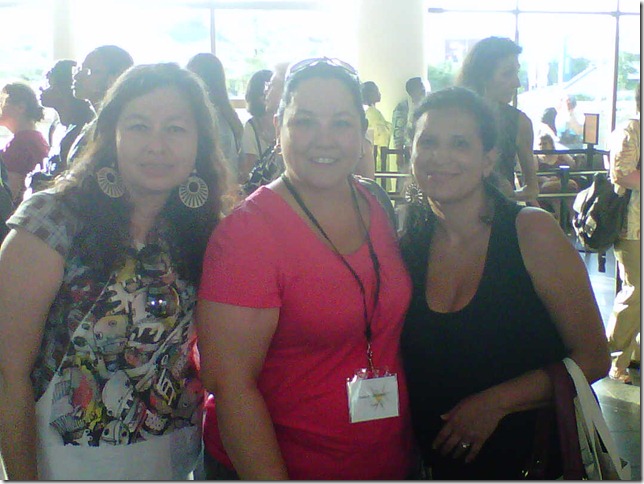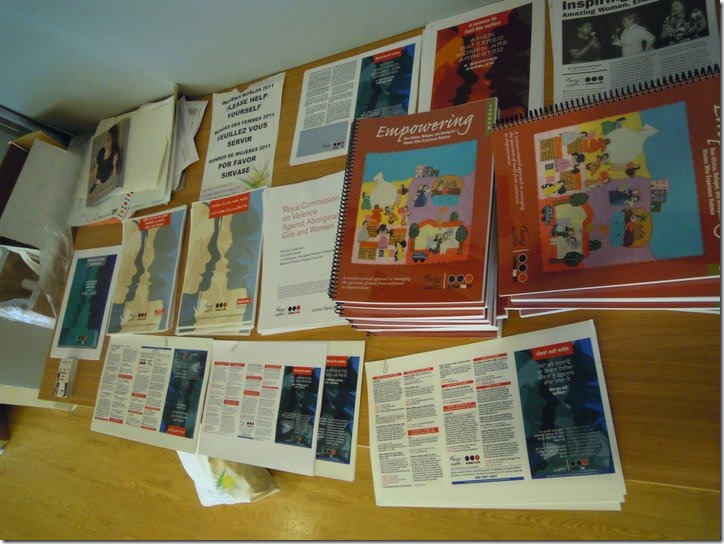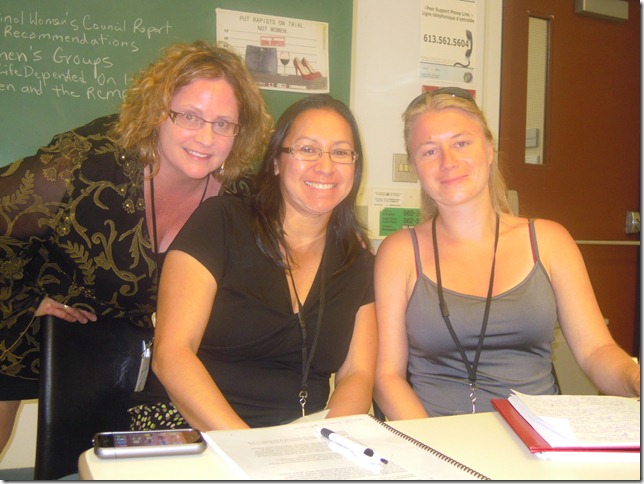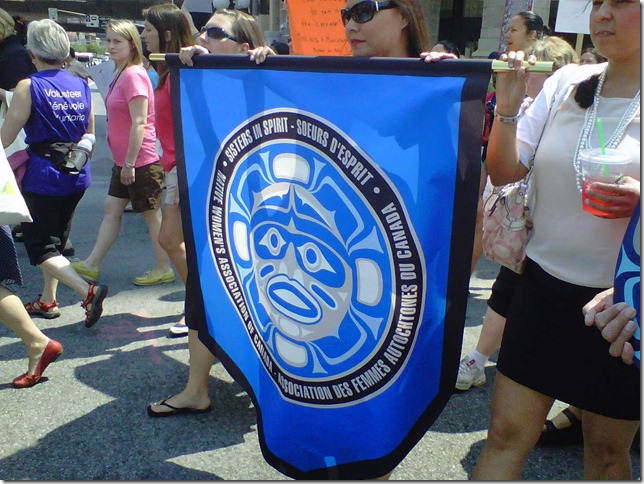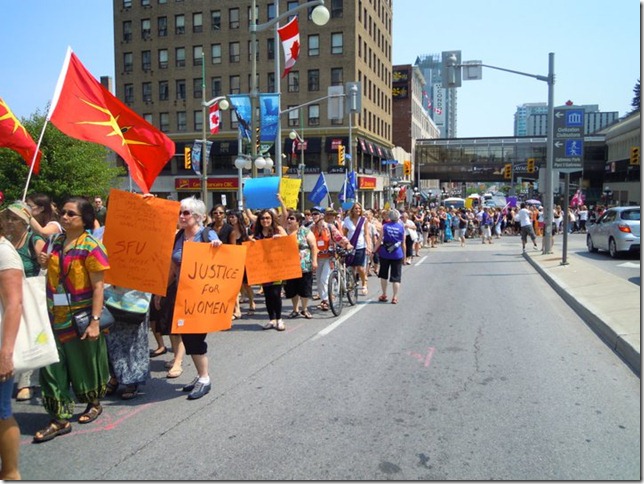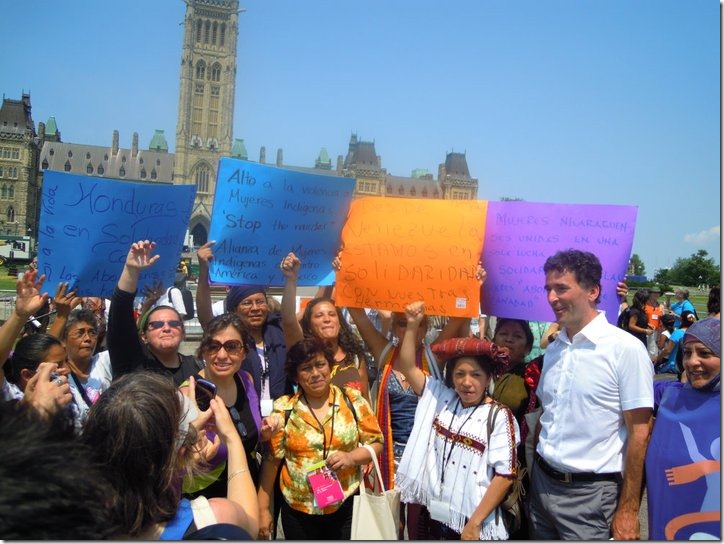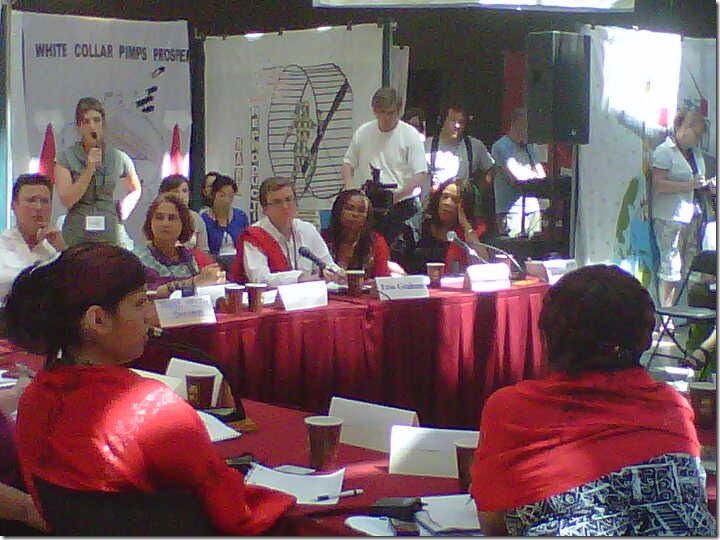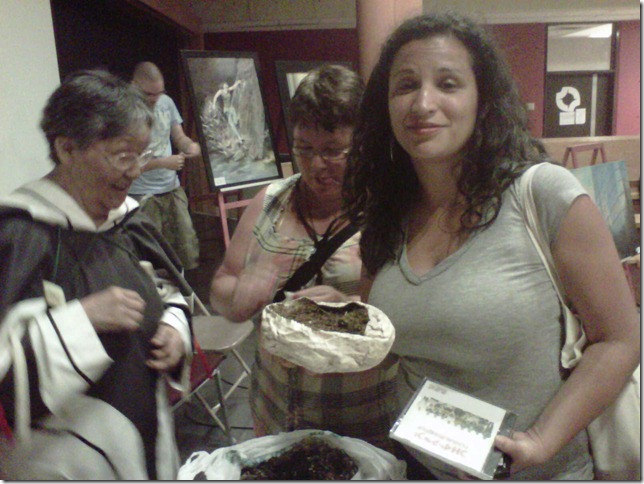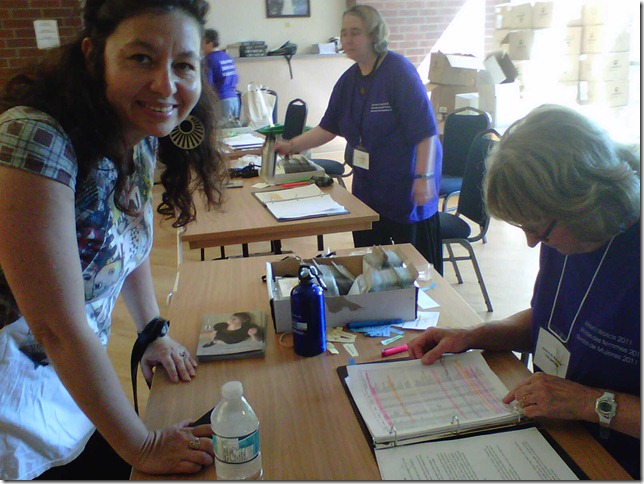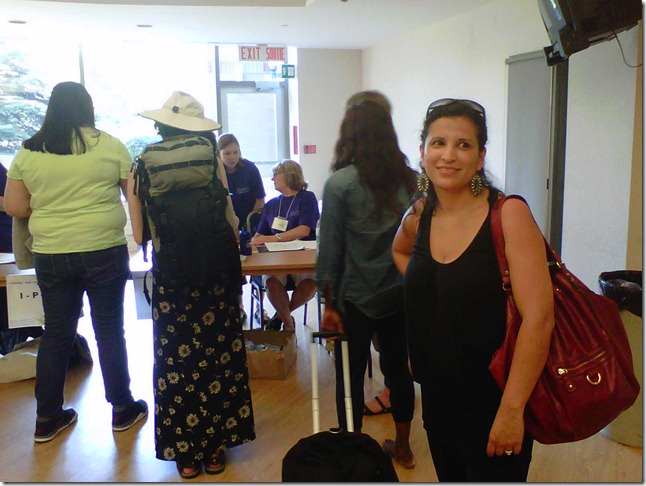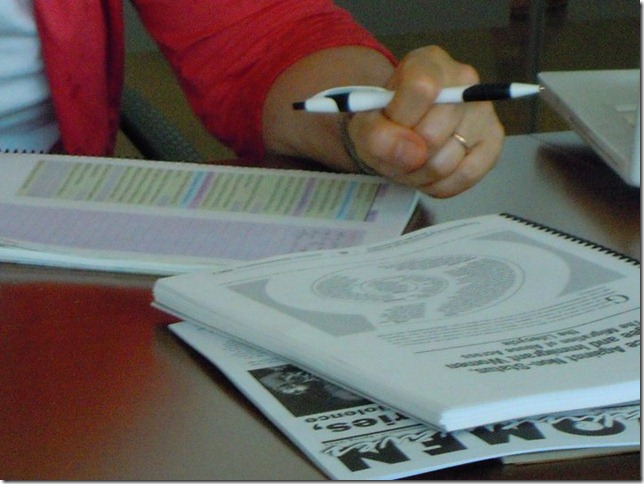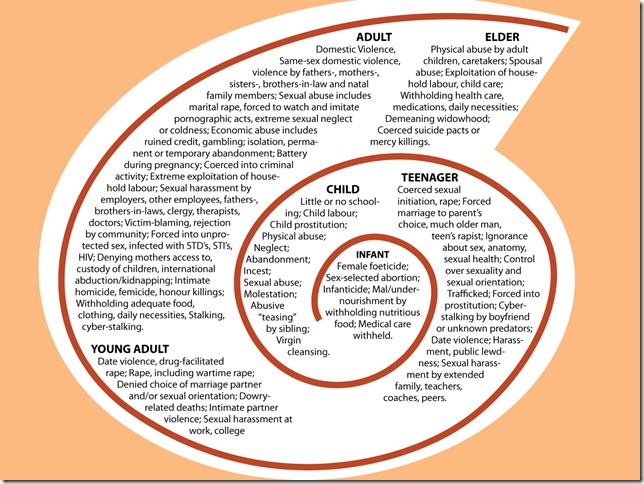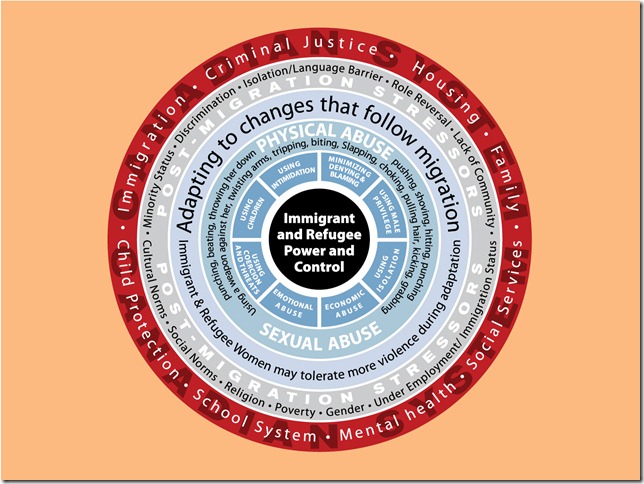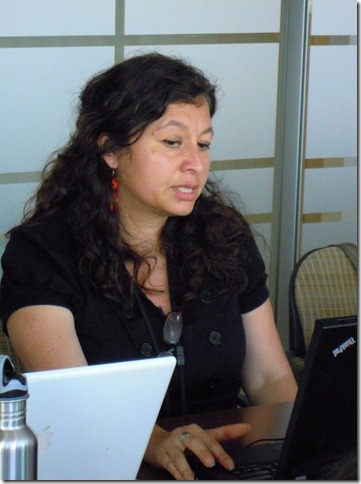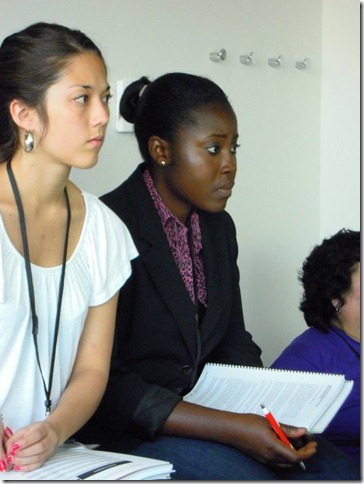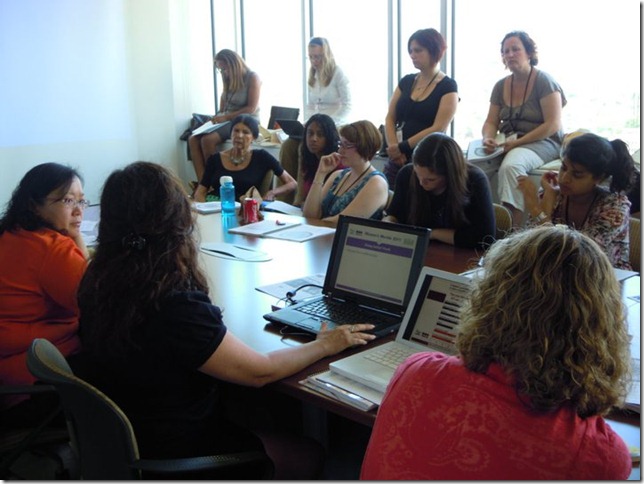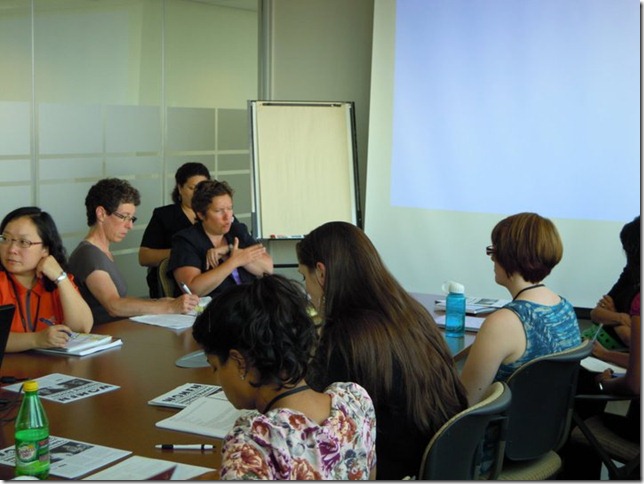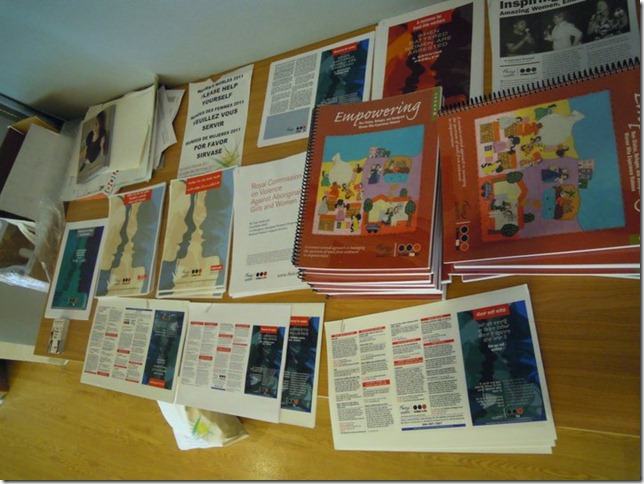Women’s Worlds 2011 – Why We Liked It? Why It Is Important for Us at Battered Women’s Support Services? by Andrea Canales and Rosa Elena Arteaga
Women’s Worlds 2011
Why we liked it? Why it is important for us at Battered Women’s Support Services?
by Andrea Canales and Rosa Elena Arteaga
Rosa Elena Arteaga
We’re reflecting back on the four days we spent with over 1600 women from across the globe who gathered on unceded Algonquin territory, for Women’s Worlds 2011. We were eager to take this opportunity to discuss issues affecting women in a global context in addition to raising concerns about the Canadian government’s response to women’s issues; among them violence against women which is the most pressing social issue of our time and one which we are committed to put at the front of the agenda.
We initiated our journey by joining an exclusive welcoming ceremony for Indigenous women; this welcome was an important start to our participation in this conference, as we could not begin our work without being grounded in the reality of Canada’s colonial history. We thank the Algonquin people for their generosity in allowing us to be part of their ceremony and having us in their traditional land.
Lee Maracle and Andrea Canales
L to R – Rosa Elena Arteaga, Darla Goodwin (WAVAW) and Andrea Canales
We facilitated our session on the first day of this conference on Breaking Cycles: Empowering Non-Status, Refugee and Immigrant Women Who Experience Violence. Our room was at full capacity thus reflecting the very real need for these discussions and learnings to take place. Participants were appreciative of the comprehensive resources and deemed them “cutting edge”. Workers often feel isolated or lacking the tools to successfully support women and put forward requests for further collaboration and communication.
Battered Women’s Support Services Print Resources for Women and Front-Line Workers
Although women were coming from different parts of the world, the issues where quite similar: colonization, patriarchy, disrespect for the land, globalization, forced migration, and the savaging repercussions of imperialism. Many of the sessions reflected not only the work that we are doing but the pressing need for us to continue our work to end violence against women.
We attended RCMP Accountability? Review of Yukon’s Police Force workshop which reviewed the case of two RCMP constables were tried and acquitted of sexual assault, Yukon equality-seeking and Aboriginal women’s groups mobilized to demand adequate police accountability. Panellists reported on their coalition-building activities, systemic problems in RCMP responses to male violence against women, racist behaviours, and on their recommendations for national police force change. We compared notes on the increase of arrests of battered women with activists from the Yukon and have committed to collaborating to further our work. Here’s some of our work on Women Arrests and for Women. Here’s our blog Women Arrests and Police Complaints: We Must Remain Vigilant
RCMP Accountability? Review of Yukon’s Police Force 2010 – My Life Depended On It and recent news about RCMP Misconduct in the Yukon
Lois Moorcroft, Yukon Women’s Transition Home Society, Canada; Corinne McKay, Canada; Ketsia Houde, Les EssentiElles, Canada; Barbara McInerney, Kaushee’s Place, Yukon Women’s Transition Home Society, Canada
On day two we attended a powerful march to Parliament to demand justice for missing and murdered Aboriginal women and girls, which brought together over 800 conference representatives, alongside media. We took over the main streets of Ottawa, and paralyzed traffic during one of their busiest times of the day. Women of the world came together to make a statement that violence against women, especially violence against Indigenous women, will NOT be tolerated and it must end. Sadly, Canada’s federal government announced on the same day of the march to Parliament Hill that there would be No Action Plan on Missing and Murdered Aboriginal Women, further highlighting a distressing contradiction with Canada’s federal government “tough on crime” agenda.
At the end of the march, we gathered with other Latin American women, who expressed their appreciation at being part of this march. As, Petronila, an Indigenous woman from Guatemala commented, they are also struggling with the “sanctioned” violence against Indigenous women in one of the largest genocides of modern times, which has left over 100,000 people dead.
Indigenous Feminisms ROCKS
Fleshmapping: Prostitution in a Globalized World (foreground Cherry Smiley and Fay Blaney AWAN)
Day three we attended Fleshmapping, read this Blog by Rabble.ca for more info Featuring daily at Women’s Worlds is the multi-lingual, multi-media exhibit Global Fleshmapping/ Les Draps Parlant/ La Resistencia de Las Mujeres: Prostitution in a Globalized World Fleshmapping incorporated interactive videos, games and 70 used bedsheets as canvasses on which women from across the country have expressed their resistance to prostitution and sex trafficking. On each day of the conference, 16 women from around the world came together in spontaneous, public consciousness-raising discussions about the connections between global trafficking and the sexual exploitation of women in their own areas including women who have left prostitution, front-line workers, academics, community organizers and others.
Storytelling and traditional Nunavut Songs
The plenaries and workshops we attended:
- Breaking Ceilings in Mixed Organizations: Commonalities in Experiences from Nicaragua, Cuba and Canada
- Harms of the Pornography Industry: Re-igniting Feminist Resistance
- Towards Inclusion: Amplifying Women’s Leadership and Voices in the International Development Process
- Violencia Contra la Mujer: Sexual, Social, Sistémico
- Flesh Mapping: Prostitution in a Globalized World
- RCMP Accountability? Review of Yukon’s Police Force 2010
- Where is the Love? RE/thinking Feminist Workplaces
- Challenges and Possibilities of Transnational and Cross-Cultural Feminist Self-Making
- Importance of the Seal for Inuit Women
- Addressing Sexual Violence with Young Women of Colour and Immigrant/Refugee Girls
- Storytelling and traditional Nunavut Songs
- Developing Leadership in a New Generation of Women of an Invisible Minority
A Global Team
The energy was vibrant throughout this gathering, as women felt a strong need to come together and make others witness of the issues that are affecting women in their countries. We leave with hope knowing that there are women everywhere, scholars, community organizers, food growers, writers, artists, mothers, daughters and grandmothers who have and will continue the fight against violence against women, for gender equality, for justice for all and who are moved by the hope to change the world for future generations. To these women we say thank you for their determination and for the reminder that we CAN and WILL make a change and that we are not alone. Thank you for being our witness.
We, here at Battered Women’s Support Services, will continue our hard work of ending violence against women; we are re-energized by the awareness that what we are doing is working and that we have a global team to collaborate and hope with.
We are grateful for the financial support from The Law Foundation of BC and Women’s Worlds 2011 for making our attendance possible

